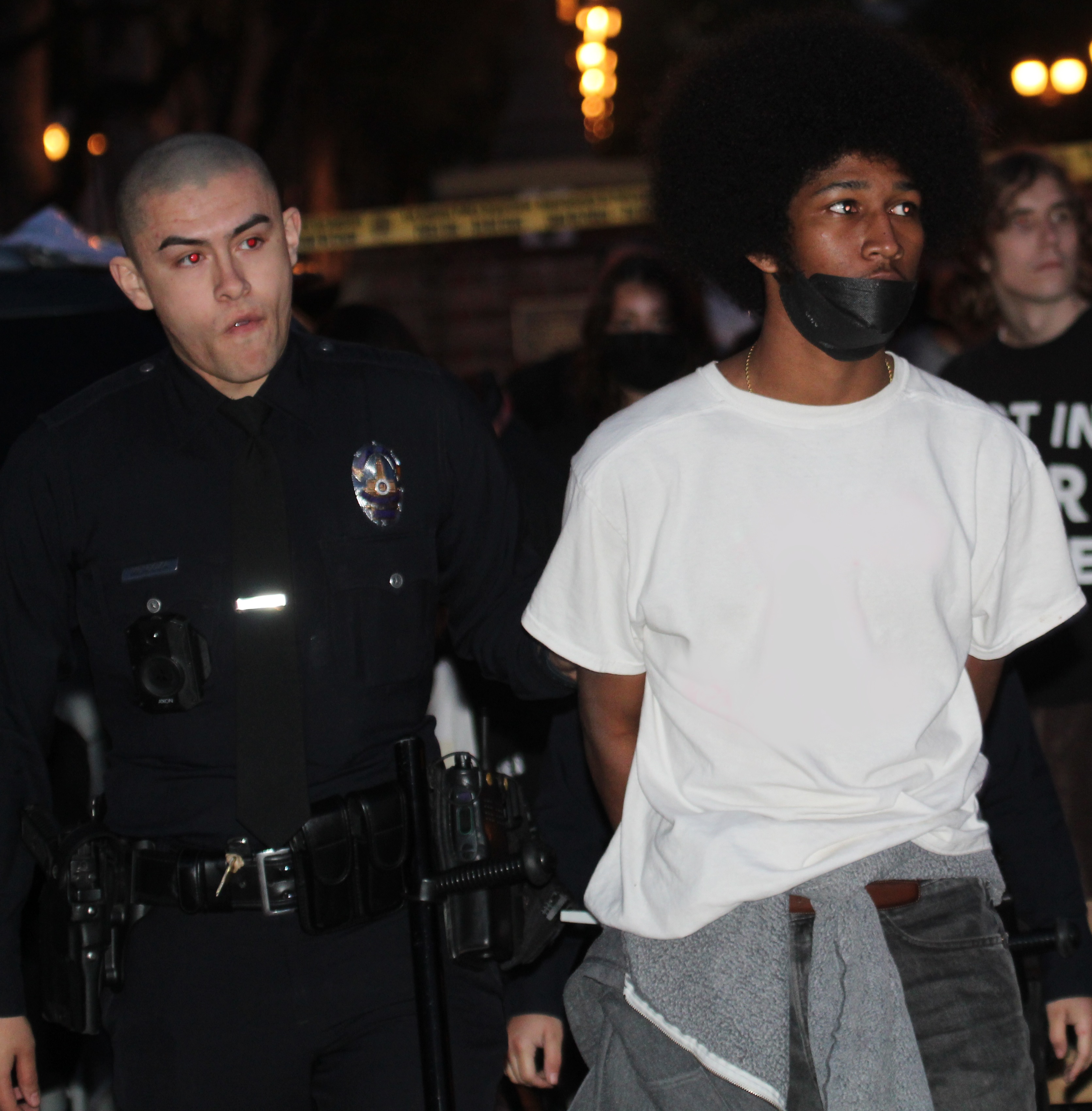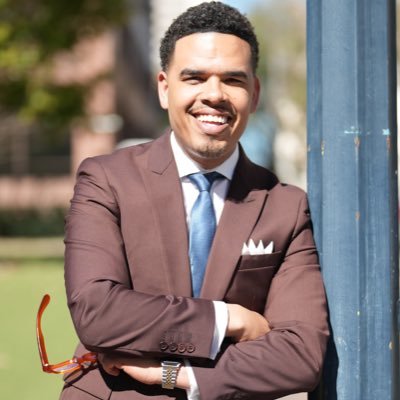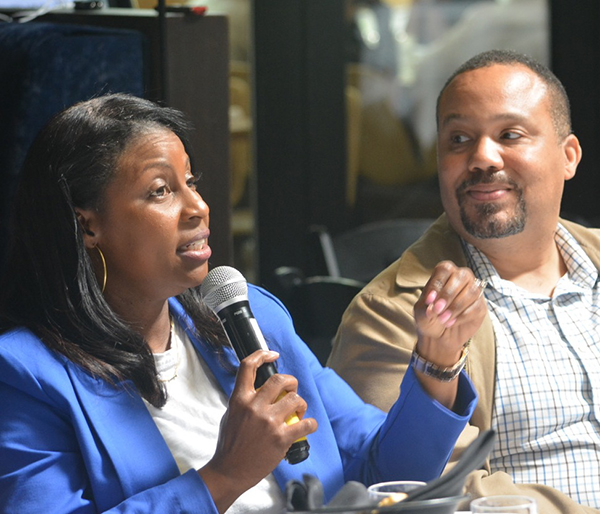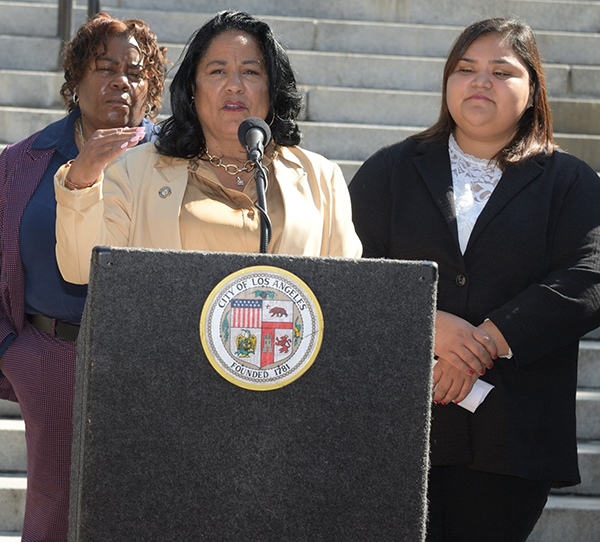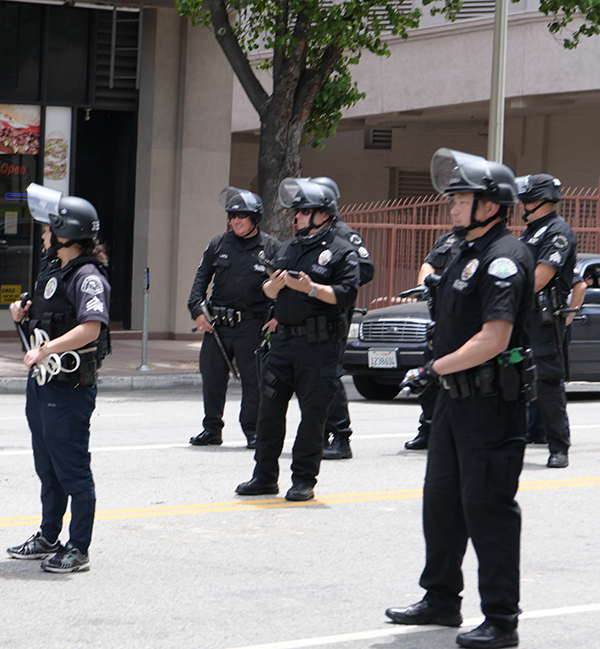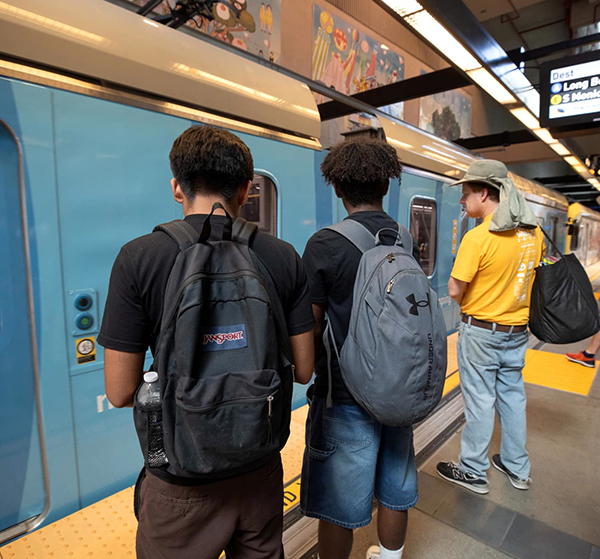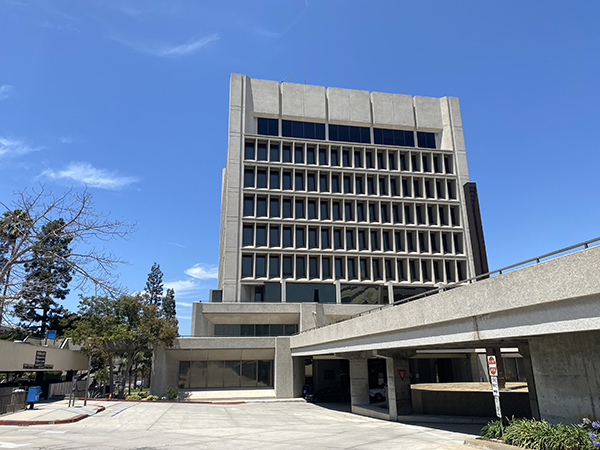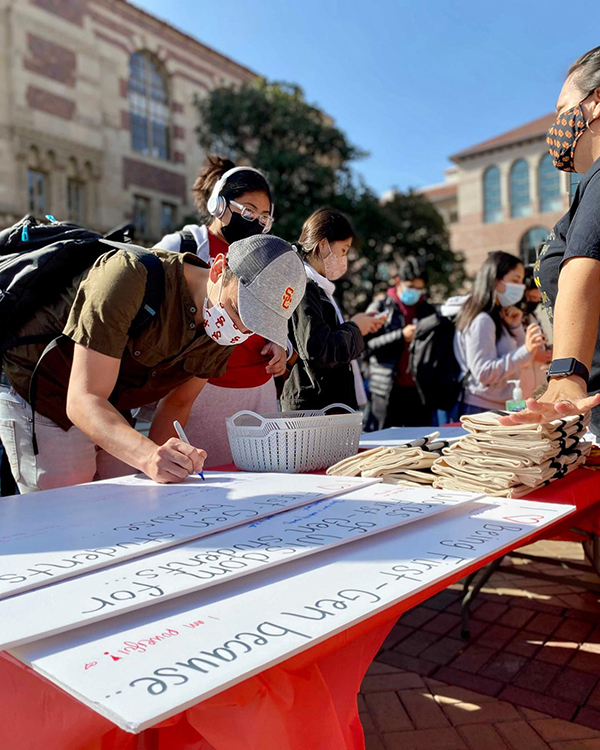Wave Staff and Wire Reports
LOS ANGELES — African American and Latino students will be among those most heavily impacted for years, possibly generations, by the controversial U.S. Supreme Court decision last week banning affirmative action in college admissions, according to educators.
Black students “will pay the highest price,” said Ibert Schultz, the executive director of Black College Success, a program that works with African American high school students in South Los Angeles.
“This decision institutes the same kind of ‘colorblind’ policies that we’ve seen in California since Proposition 209 now apply to all colleges and universities while keeping practices like legacy and athletic preferences intact, further entrenching inequality into an already unfair admissions process that our students are already up against,” Schultz said.
The court ruling also comes at a critically historic time for students of color, said Michele Siqueiros, the president of the Campaign for College Opportunity, a nonprofit group helping Californians go to college.
“We have more eligible students ready for college than we’ve ever had,” she said.
The decision was roundly denounced by Los Angeles leaders, with Mayor Karen Bass calling it “part of a broader effort to erase the true history of this country and insulate those who have benefited from it.”
“I know our educational institutions here in Los Angeles work to value and defend the absolute necessity of diversity,” she said. “Our city draws strength from our diversity, and we always will.”
Rep. Sydney Kamlager-Dove, whose 37th Congressional District includes Culver City and South Los Angeles, said the ruling “sets the clock back on civil rights, overturning decades of precedent and establishing a colorblind standard in our justice system that will be detrimental to cases on race and equality in the future.
“The court today chose wrong when they ruled to ignore race in a nation that has yet to accept its history rooted in racism,” Kamlager-Dove said. “The majority of Americans understand that we must address systemic inequalities and right historic wrongs by opening doors to education and employment opportunities for those who have been denied this fundamental privilege.”
Vice President Kamala Harris criticized the court decision as “a step backward for our nation.”
“It rolls back long-established precedent,” she said, “and will make it more difficult for students from underrepresented backgrounds to have access to opportunities that will help them fulfill their full potential.
Former President Barack Obama was more circumspect in his comment.
“Like any policy, affirmative action wasn’t perfect,” he said, posting on social media. “But it allowed generations of students like Michelle and me to prove we belonged. Now it’s up to all of us to give young people the opportunities they deserve — and help students everywhere benefit from new perspectives.”
“My heart breaks for any young person out there who’s wondering what their future holds — and what kinds of chances will be open to them,” former first lady Michelle Obama said in a separate statement.
“And while I know the strength and grit that lies inside kids who have always had to sweat a little more to climb the same ladders, I hope and I pray that the rest of us are willing to sweat a little, too, Today is a reminder that we’ve got to do the work not just to enact policies that reflect our values of equity and fairness, but to truly make those values real in all of our schools, workplaces, and neighborhoods.”
Although the ruling will have a limited effect on California public colleges — where previous ballot measures prohibit race-based admissions — it is catastrophic for private universities like USC, Loyola, Occidental and the Claremont colleges, which often have the largest scholarship and grant funding available.
USC President Carol Folt pledged that the university will remain committed to the idea that “excellence and diversity are inextricably intertwined.”
“This decision will not impact our commitment to creating a campus that is welcoming, diverse and inclusive to talented individuals from every background,” she said. “USC provides an outstanding learning community where differing backgrounds and points of view are embraced, where ideas collide, beliefs are challenged and innovation thrives. We will not go backward.”
Educators such as Chancellor Carol Christ and several other top UC Berkeley officials said the high court ruling is regrettable and warned that it will reduce opportunities for people of color and thwart the nation’s progress toward racial equality.
“Students learn more alongside students who have different beliefs, who have different experiences or identities than they do,” Christ said. “Study after study shows that diverse teams and communities excel at innovation, discovery and creativity, values we embrace at Berkeley.”
In California, UCLA, UC Berkeley and other public colleges and universities have been prohibited from considering race in admissions since 1996, when voters approved Proposition 209, which eliminated affirmative action for them.
But the experience of California could be instructive for private schools in the state as well as across the country. After implementation of Proposition 209, there was an immediate devastating effect on diversity.
The number of Black and Latino freshmen at UCLA and Berkeley fell by 50%.

